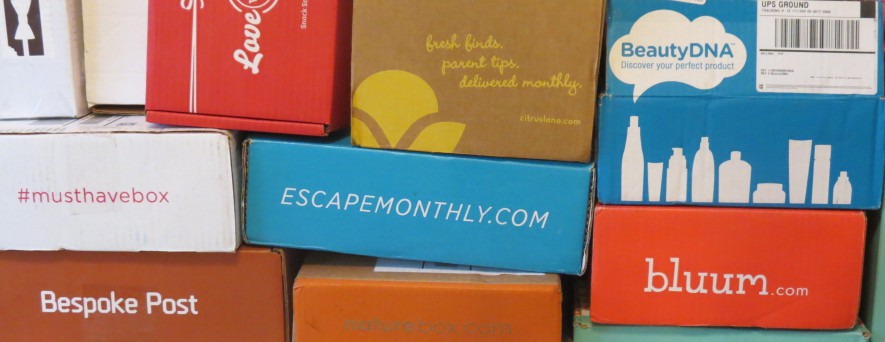Do subscription boxes hurt socialization?
We all enjoy and love the subscription box services and products that we pay for and receive every month. Whether it be shaving products, popular culture merchandise, or even food and water, these services provide easy-to-access, quality goods that are delivered to our very own homes. However, how do these amenity providers affect the socialization of us, their own customers?
Subscription boxes are the products of a plethora of subscription commerce companies that have only started to gain prominence for the past decade. These companies provide boxes that are filled with niche products for the consumers they are targeting; these could be food, apparel, comic books, etc. These boxes are paid for through subscription payments that are usually fulfilled every month, and the customer then receives said box.
Here in the United States of America alone, there is an estimated 400 to 600 companies offering these subscription boxes. The most popular of these businesses include, but are not limited to, Blue Apron (a meal kit service), Stitch fix (a personal styling service), Dollar Shave Club (a personal grooming product service), and Loot Crate (a pop culture product service). This constantly innovating industry has grown from 4.7 million visitors to their websites in 2014 to 41.7 million in 2018, clearly demonstrating an increasing demand for these easy to access quality products. Additionally, a majority of the consumers of subscription boxes are 18 to 24 years old, and “prefer the convenience of online shopping.” However, while online shopping and subscription boxes are extremely easy to purchase and are high in quality, this massive increase in popularity of them may have some negatives.
The physical marketplace has been the locality for much of humanity’s socialization. It’s where we practiced developing skills such as blacksmithing in the past and accounting in the present, and it’s where we learned the social skills that were vital for trading and general communication. However, with the adoption of mass consumerism and the development of subscription services and boxes, this socialization could be harmed.
The vast majority of the aforementioned subscription box services are provided through online shopping. Now, this makes goods incredibly easy to access and purchase with just a click of a button, which is tremendous, but there is no social interaction taking place. This, practiced en masse, would obviously harm the socialization of individuals. This development is only propagated through the nearly exponential increase in technological advancement taking place today; cell phones are able to read your face, TVs can be controlled through voice commands, and virtual reality systems are being integrated with personal computers.
With these new, innovative technologies and subscription services and boxes, it will only be a matter of time before individuals are able to stay in their homes, not socializing with people in marketplaces, due to how easily accessible goods are. This is by no means a complete condemnation of subscription services and boxes; they provide excellent products and are changing our economy in ways never imagined. Rather, this is a critique on their societal effects on the world.

Nick is a senior at Delphi and this is his second year in Parnassus. He runs varsity cross country and track and field. He is also a member of Student...



















